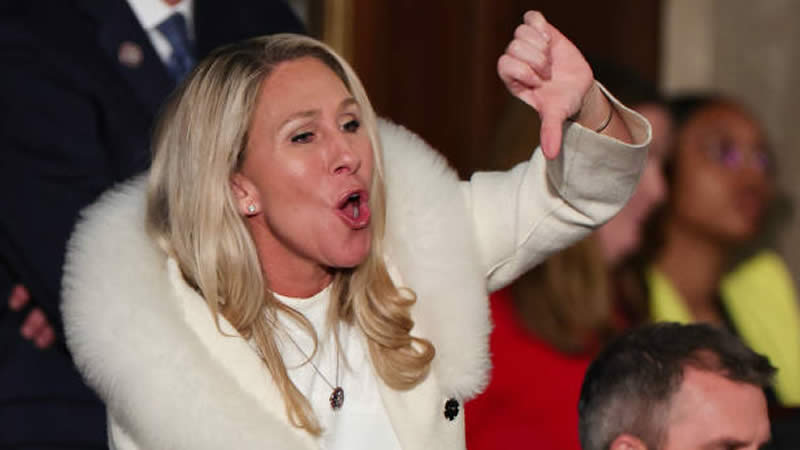U.S. Rep. Marjorie Taylor Greene (R-GA) admitted on Sunday to spreading a false report accusing Vice President Kamala Harris of receiving debate questions in advance of her debate with former President Donald Trump. Greene, who has been vocal in her opposition to House Speaker Mike Johnson (R-LA) in recent weeks, shared the debunked claim, which had originated from right-wing conspiracy theorists.
The false report suggested that Harris had been given the questions prior to her debate with Trump, a theory that the former president has also promoted. Greene added a shocking twist to the story, claiming that a supposed whistleblower who had leaked this information died in a car accident.
In her social media post, Greene stated, “The ABC whistleblower who claimed Kamala Harris was given debate questions ahead of the debate has died in a car crash according to news reports.” However, this claim was not based on any legitimate news source. Instead, Greene had linked to a WordPress blog, rather than any credible media outlet.
The misinformation spread by Greene prompted swift backlash online. National security attorney Bradley P. Moss responded bluntly, “Please seek mental help.” Artist Art Candee also criticized Greene, writing, “You need to be in a psych ward.”
Despite the intense criticism, Greene initially stood by her post. However, later that day, she admitted that the story was false. In a follow-up post, Greene wrote, “This story appears to be false and I’m glad to hear it. We need a serious investigation into the whistleblower’s report that Kamala Harris was given debate questions ahead of time from ABC!”
While Greene acknowledged that the claim was untrue, she did not delete her original post spreading the misinformation. Her refusal to remove the post raised concerns among critics, who argued that the damage had already been done by amplifying a baseless conspiracy theory.
This incident is not the first time Greene has faced scrutiny for sharing false or misleading information. Her latest admission underscores the ongoing challenges of combating misinformation in political discourse, especially when prominent figures share unverified claims. Despite admitting the story was false, Greene’s persistence in calling for an investigation into a debunked claim shows how conspiracy theories can continue to thrive, even after they have been disproven.

